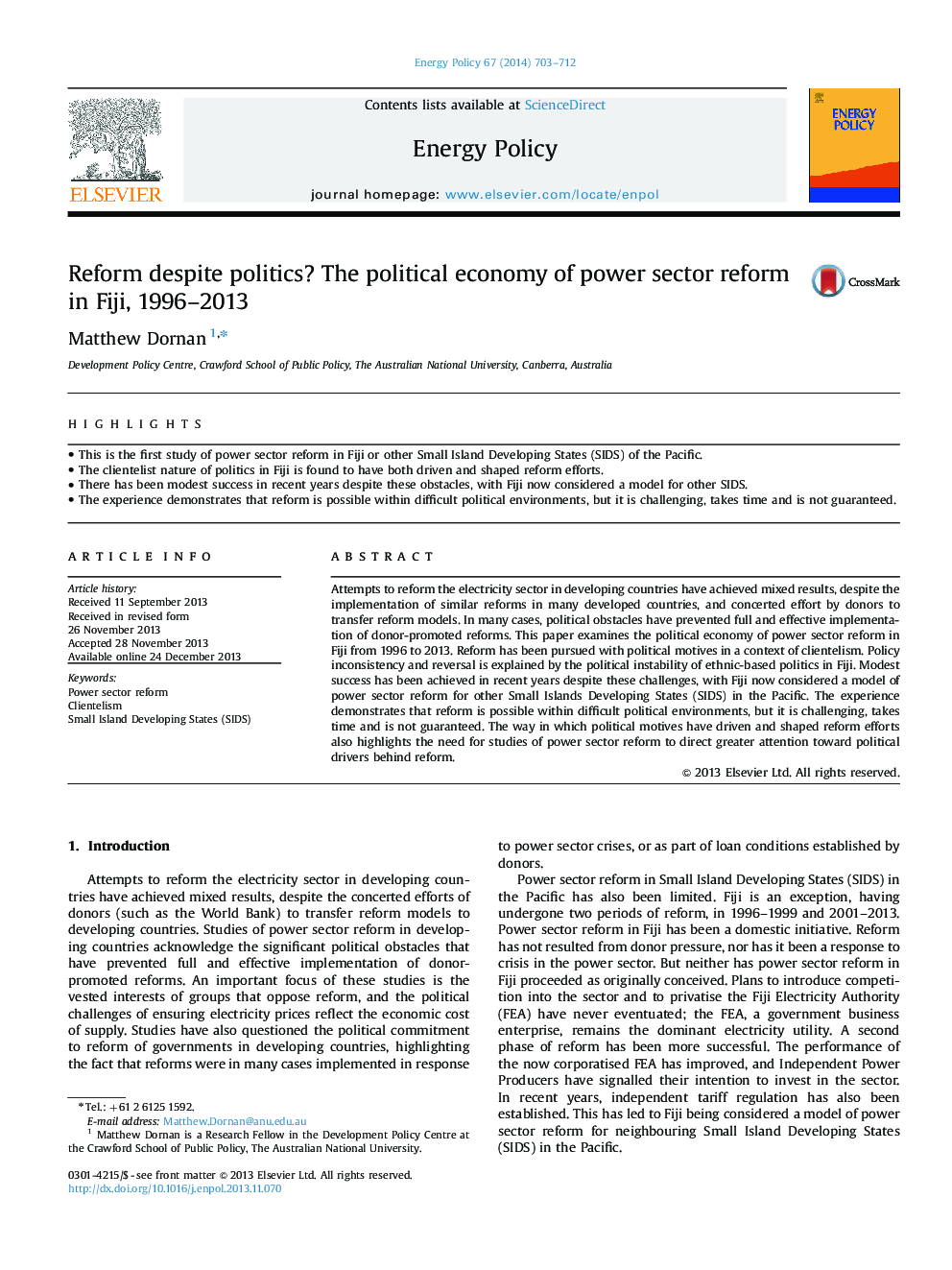| Article ID | Journal | Published Year | Pages | File Type |
|---|---|---|---|---|
| 7402674 | Energy Policy | 2014 | 10 Pages |
Abstract
Attempts to reform the electricity sector in developing countries have achieved mixed results, despite the implementation of similar reforms in many developed countries, and concerted effort by donors to transfer reform models. In many cases, political obstacles have prevented full and effective implementation of donor-promoted reforms. This paper examines the political economy of power sector reform in Fiji from 1996 to 2013. Reform has been pursued with political motives in a context of clientelism. Policy inconsistency and reversal is explained by the political instability of ethnic-based politics in Fiji. Modest success has been achieved in recent years despite these challenges, with Fiji now considered a model of power sector reform for other Small Islands Developing States (SIDS) in the Pacific. The experience demonstrates that reform is possible within difficult political environments, but it is challenging, takes time and is not guaranteed. The way in which political motives have driven and shaped reform efforts also highlights the need for studies of power sector reform to direct greater attention toward political drivers behind reform.
Related Topics
Physical Sciences and Engineering
Energy
Energy Engineering and Power Technology
Authors
Matthew Dornan,
